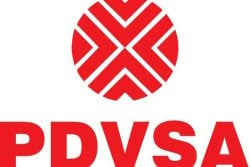(GNBS) Protecting our environment is not just a responsibility, but a necessity for sustainable development. As businesses and companies continue to expand to meet increasing demands for products and services, if not properly managed, adverse impacts on the environment will also increase. These businesses include tourism establishments which provide accommodation, food, entertainment and other tourism related services including transportation, airport transfer service, beauty and hygiene, events planning and more.
As we observe Tourism Awareness Month 2024 under the theme “A people centered tourism product: elevating our profile”,let us continue to look at National Standards related to this sector. One such standard adopted by the Guyana National Bureau of Standards (GNBS) this year as a National Standard is the GYS 589: 2024 – Sustainable Tourism – Environmental Management Systems – requirements.
This standard was adopted from the CARICOM Regional Organisation for Standards and Quality (CROSQ) and helps tourism establishments formulate a policy, objectives and minimum performance requirements based on best environmental management practices. It is intended for businesses providing tourism related services that are desirous of implementing and maintaining an EMS to demonstrate conformance and to accrue other benefits.
Today, tourists are increasingly seeking eco-friendly and sustainable travel options like those we have here in Guyana. Therefore, providers can implement the GYS589 standard to boost their business’ reputation as an environmentally responsible and sustainable choice, attracting environmentally conscious travelers and improving customers’ loyalty.
The requirements of the standard are relatively straightforward and easily implementable. Firstly, the document requires establishing the context of the organisation by undertaking a review to identify all internal and external issues which are relevant to the establishment’s operations, and which can affect its ability to achieve the intended outcomes of its EMS. Also required is a review to identify interested parties/stakeholders, to understand their needs and expectations and if any will be adopted as compliance obligations.
The standard also addresses leadership and commitment, planning and organizing, support, operational planning and control, performance monitoring and evaluation, and improvement.
As it relates to leadership and commitment, the standard states that management shall take accountability for the effectiveness of the EMS and ensure resources needed for the EMS are available. Further, management is required to ensure that the environmental policy and objectives are compatible with the strategic direction and context of the organisation, and ensure that the EMS is integrated into the establishment’s processes.
The planning and organizing clause of the document focuses on risks and opportunities, environmental aspects and impacts, compliance obligations and environmental objectives.
Requirements for competence are also outlined in the standard. Accordingly, establishments shall determine the competence of persons working under their control, especially those who affect environmental performance and ability to fulfil compliance obligations. In addition, management must ensure that these people are competent based on appropriate education and/or experience.
Meanwhile, to use resources in an efficient manner, the document demonstrates how to promote effective internal and external communication, documentation, record keeping, and more.
Finally, the standard includes guidelines for application to simplify the process of implementation for interested tourism establishments.






